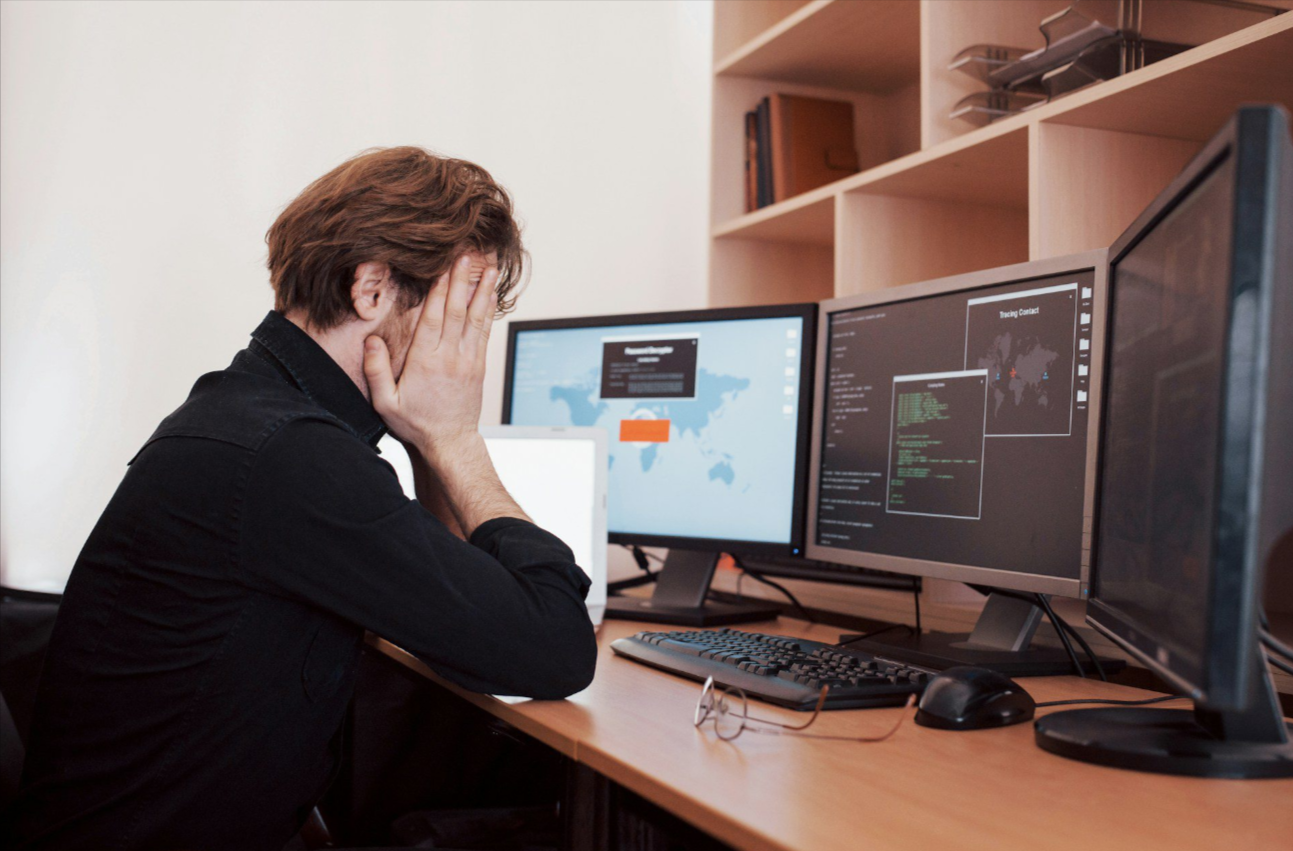How to Protect Your Data and Privacy as a Digital Nomad

With the increasing popularity of digital nomad life, more people are taking advantage of traveling the world with a remote job. While this unusual lifestyle gives you remarkable liberty and flexibility, it is also a associated with high-on-the-run dangers, particularly with respect to data and privacy. And with access of personal and professional data from countless locations, public Wi-Fi networks and numerous devices, threats of data breaches, identity theft and privacy violations soar.
The aim of this article is to share some practical examples that can help digital nomads protect their data and privacy while working and living abroad. These Tips Will Help Keep You Safe Online and Protect Your Sensitive Information, From Securing Your Devices to Using the Right Tools and Best Practices
1. Data Protection Matters for Digital Nomads
From work to working out, communication to vacation planning, banking to living life, digital nomads need the internet for everything. This digital convenience is a two-edged sword, however, and makes nomads ideal targets for cybercriminals. Connecting to public Wi-Fi networks, insecure devices, and leaking personal information online can put you in real danger.
What are the reasons that make sure your data and privacy are safe a critical consideration as a digital nomad?
- Personal Security — Hackers and thieves will find value in your personal data, passwords, financial information, and location.high level of confidentiality With protecting it, you will be safe.
- Business and Professional Security: Digital Nomads often work on client projects or run businesses online. In case your confidential client data gets leaked, or you lose your reputation as a professional, this could happen due to a data breach.
- You know that you have protected your data in the best possible way, so it gives you peace, focus on your work and your travel, without thinking from a security perspective.
2. Employ secure devices and software
Your devices and software are the first lines of defence when it comes to preparing, preventing, and protecting your data. By doing so, you make sure that your devices are protected from malware and intrusion whether you are using a laptop, a tablet, or a smartphone.
How to Secure Your Devices:
- Employ Complex Passwords: Use specific passwords in your devices Do not use the same password for different accounts. It should include a mixture of letters, digits and symbols and be at least 12 characters long. So consider using a password manager if you need to setup a secure password.
- Set Up Multi-Factor Authentication (MFA): MFA adds an additional layer of protection by requesting a second verification method (such as a code sent to your mobile device) alongside your password. Most of the online services (email, banking, and social media accounts, etc.) provide this feature.
- Keep Your Software Updated — Keep your operating system, antivirus, and apps updated. Hackers can exploit vulnerabilities in software, which is why software makers constantly put out patches to clubs those holes.
- Antivirus and Anti-Malware: Use antivirus and anti-malware software to protect your devices against malicious attacks and prevent intruders from hacking into your devices.
3. Using Virtual Private Networks (VPN)
Public Wi-Fi networks, which can be found in most cafes and co-working spaces, are one of the highest risk factors for digital nomads. Your data can be easily compromised on unsecured networks by cybercriminals. A VPN is a must to safeguard your data from seeing eyes.
Why Use a VPN?
By using a VPN, your internet connection is compressed, which drastically increases the difficulty for anyone, including hackers, from accessing your data. The other thing it does is to hide your IP address, so you can be tracked less when you are online. A VPN will Encrypt your Online Communications Whether you are browsing the internet, accessing your email, or logging into sensitive accounts; using a VPN will Encrypt this communication.
Choosing a VPN:
- Select a Trustworthy VPN Provider — Look for VPNs that provide robust encryption, no logging policy and high-speed servers. Some of the best include ExpressVPN, NordVPN, and CyberGhost.
- Stay Away from Free VPNs: Free VPN services sound appealing, but they do not always prioritize your privacy and may log your data, or have lower quality encryption. Paid services offer more security, never skimp here.
4. Be Cautious with Public Wi-Fi
Public Wi-Fi Hotspots might seem attractive, but this convenience comes at a heavy price. Cybercriminals tend to utilize unprotected networks so that they can access your gadget and obtain sensitive information.
Using Public Wi-Fi Safely:
- How to stay secure when using public Wi-Fi — Always Use a VPNWhen Using Public Wi-Fi Always Use a VPNWhen Using Public Wi-Fi
- Consider not logging into any sensitive accounts (like your online banking or payment portal) while using public Wi-Fi.
- Disable Sharing — Disable file, printer sharing on your device when accessing public Wi-Fi It stops hackers from invading our files or data present on our devices.
- Forget the Network after Use — When you are finished using a public Wi-Fi network, disconnect from it and set your device to forget the network, preventing you from automatically connecting to it in the future.
5. How to Keep Your Accounts and Data Safe Online
Your digital nomad lifestyle probably relies on a handful of online accounts, catering to work, travel, and recreational use. These accounts can have private information, like financial information, personal communication, or professional data. Another one that needs protecting from hackers.
How To Secure Your Accounts Online:
- Password Storing: Use Complex Passwords: As stated before, refrain from using the same password across multiple platforms. Instead, you should be using a password manager to store your passwords and generate secure ones.
- Use Multi-Factor Authentication (MFA): MFA is a valuable, compensating control that provides an additional authentication step. You're able to turn this on with most online services, and you should do so wherever possible.
- Watch For Phishing Scams: As a digital nomad, phishing scams are all too common. Phishing scammers pose as real businesses and colleagues attempting to extract your personal information. Make sure to check the identity of the sender before clicking on links or downloading attachments.
- Turn to encrypted email services: Another option is to use an encrypted email service, such as ProtonMail if you need to send sensitive communications. These offer end-to-end encryption and only the person sending and the intended recipient should be the only two people reading your message.
6. Cloak Your Cloud Storage and Backups
Most digital nomads use cloud storage services with ease, be it Google Drive, Dropbox, or iCloud for work files, personal documents, and photos. Cloud storage accounts are convenient but should be locked down to protect against hacking.
Please note that this is thefirst post of the series on how to secure your cloud storage.
- Use Robust Unique Passwords: Use all the same strong password tactics for your cloud accounts as you would for your other online accounts.
- Turn on Multi-Factor Authentication (MFA): If you have the option, enable MFA on your cloud storage accounts to gain an additional layer of security.
- Use encryption: If you wish to upload sensitive files to the cloud, encrypt it before uploading. Decryption key ensures that no one will be able to read your files even if they got your cloud account.
- Backup Your Data: If your data is really important to you, Back it up using a external hard drive or maybe even using a some other Cloud Service. This acts as an insurance policy in the event your primary storage account is attacked or develops a fault.
7. Worry About Your Online Presence
If you are digital nomad, most probably online you display lots of personal information, through social media, own blogs or via platforms to find cities to find people. You have to be careful about what you share because even though sharing is part of the lifestyle (and the part that people want to hear about, unfortunately), you still need to place some emphasis on discretion.
How to safeguard your digital footprint:
Keep Private Information Private: Do not share sensitive private information on the internet like your home address, full name, or travel plans. Sharing too much information can lead to identity theft or unwanted attention.
Use Pseudonyms Or Nicknames: If you have a blog or social media profiles, then use a pseudonym or a nickname to hide your identity.
Review your Privacy Settings: From time to time, review and update your Social media privacy settings to ensure there are minimum number of people who can see your posts. Do not give out personal information to anyone you do not trust.
Avoid geo-tagging: When posting on social media, geo-tagging on the real time provides a lot of data for people who have malice intentions to know your location. Limit the location tracking on social media or make posts from a distance, so that the location does not reveal your current location.
8. Use Secure Payment Methods
From booking their accommodation to travel, digital nomads transact online for everything. This is In 2016, transactions are not hidden at all and SECURE transactions are key to keeping your financial information secret.
Paying Safely:
Charge the Plastic Instead of the Debit: Credit cards provide better fraud protection than debit cards. Use a credit card for added security when paying.
No Payments on Public Wi-Fi: Never perform any financial transactions utilizing public Wi-Fi networks. Connect to a secure, private internet connection or preferably VPNs at all times
Encryption Payment Services: PayPal, Apple Pay, and Google Pay offer secure payment methods with built-in encryption. These are much safer then inputting your credit card number into a website.
Learn About Cyber Security Threats
Cybersecurity updates are a constantly shifting part of the world, and new threats arise all the time. As essential as a digital nomad, they need to be aware of any opportunities, scams or other dangers and how to avoid them.
How to Stay Informed:
Read Cybersecurity News: Stay updated on the latest attacks and learn tips for additional protection by reading some trusted cybersecurity blogs or news outlets.
Cybersecurity Courses: Take a course on cybersecurity so that you have an understanding of how you can better protect your data and the risks involved.
Wrap Up: Safety and Security as a Digital Nomad
A digital nomad would want to know that privacy and security are paramount in order to ensure the safety of data when traveling. However, by taking the steps necessary in advance to protect your devices, using strong passwords, using a VPN, and keeping up to date on cybersecurity issues, you can help ensure that you can safely work and travel with minimal risk to your personal information.
